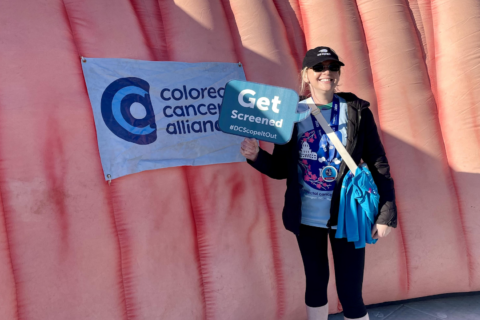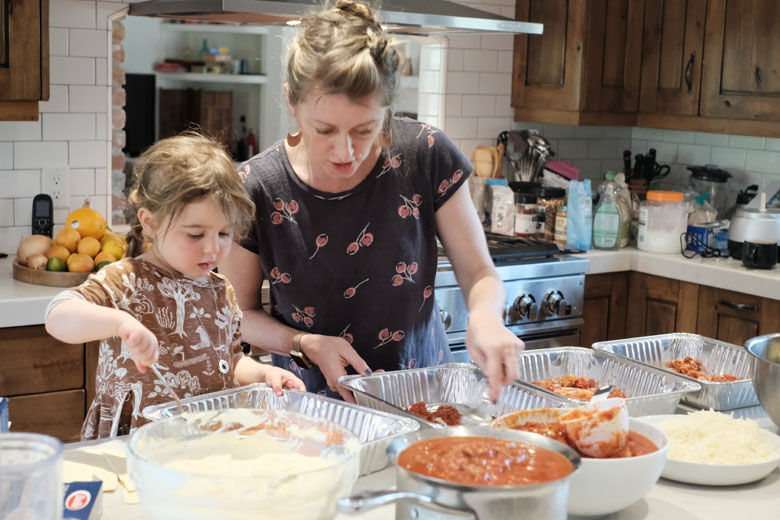
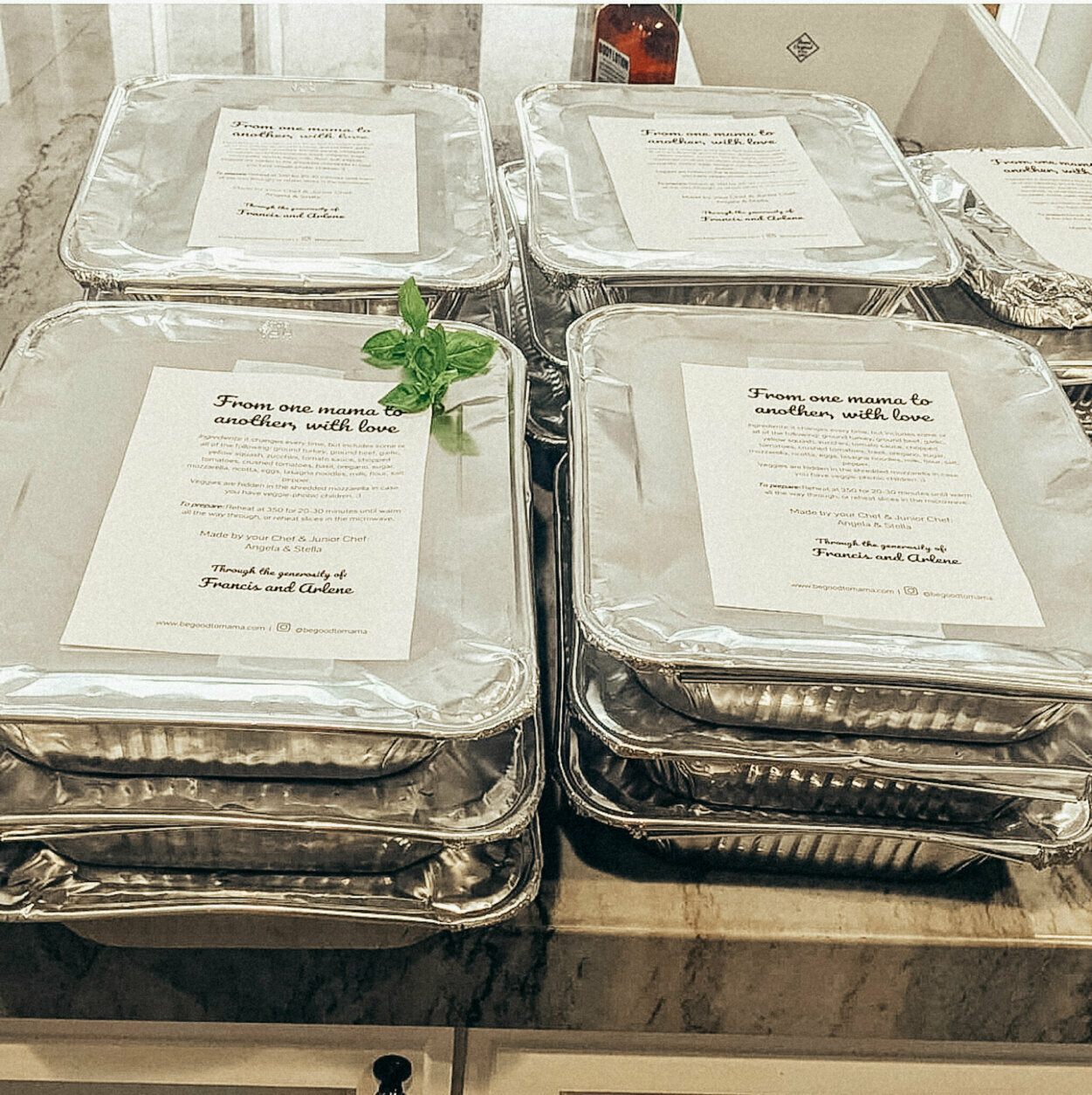
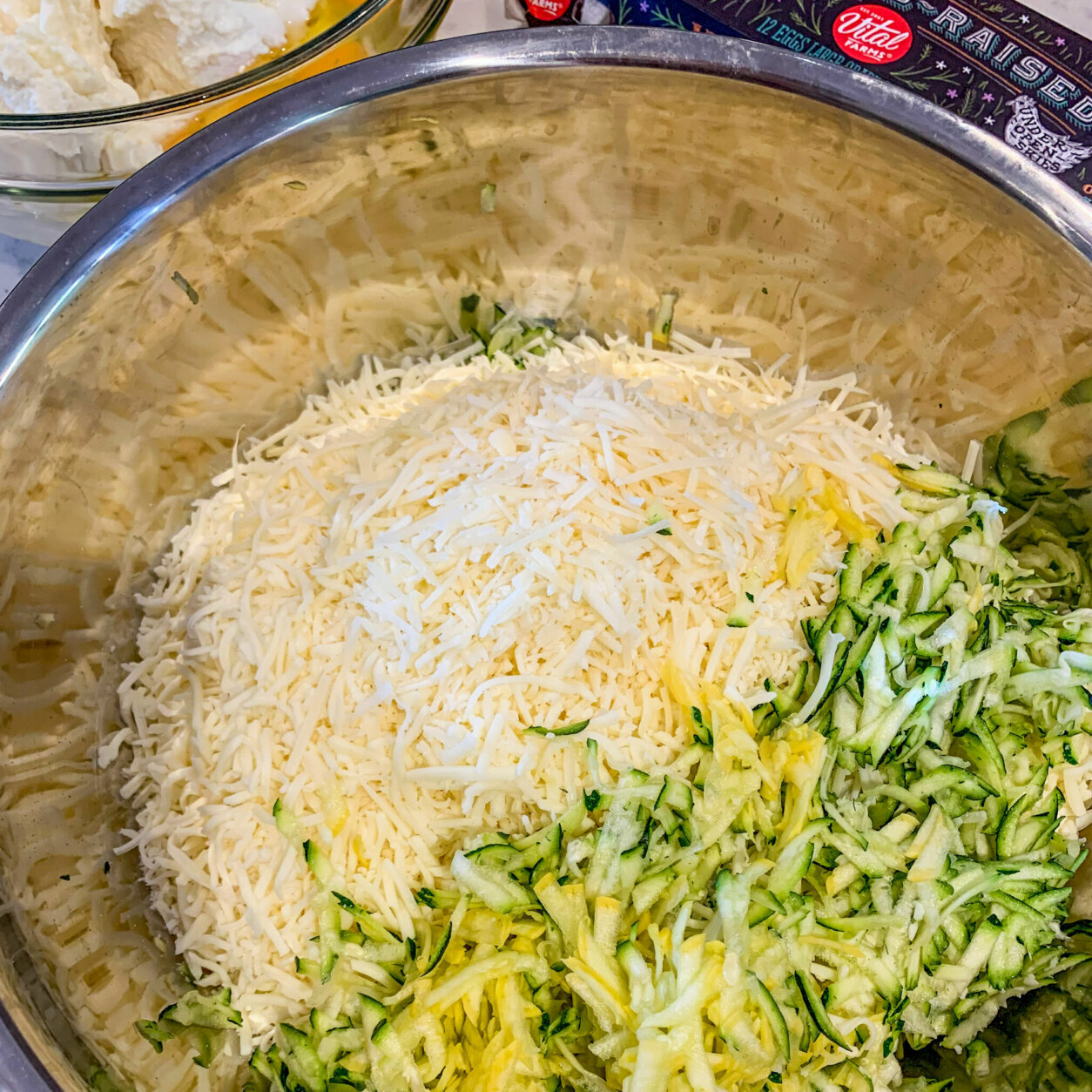
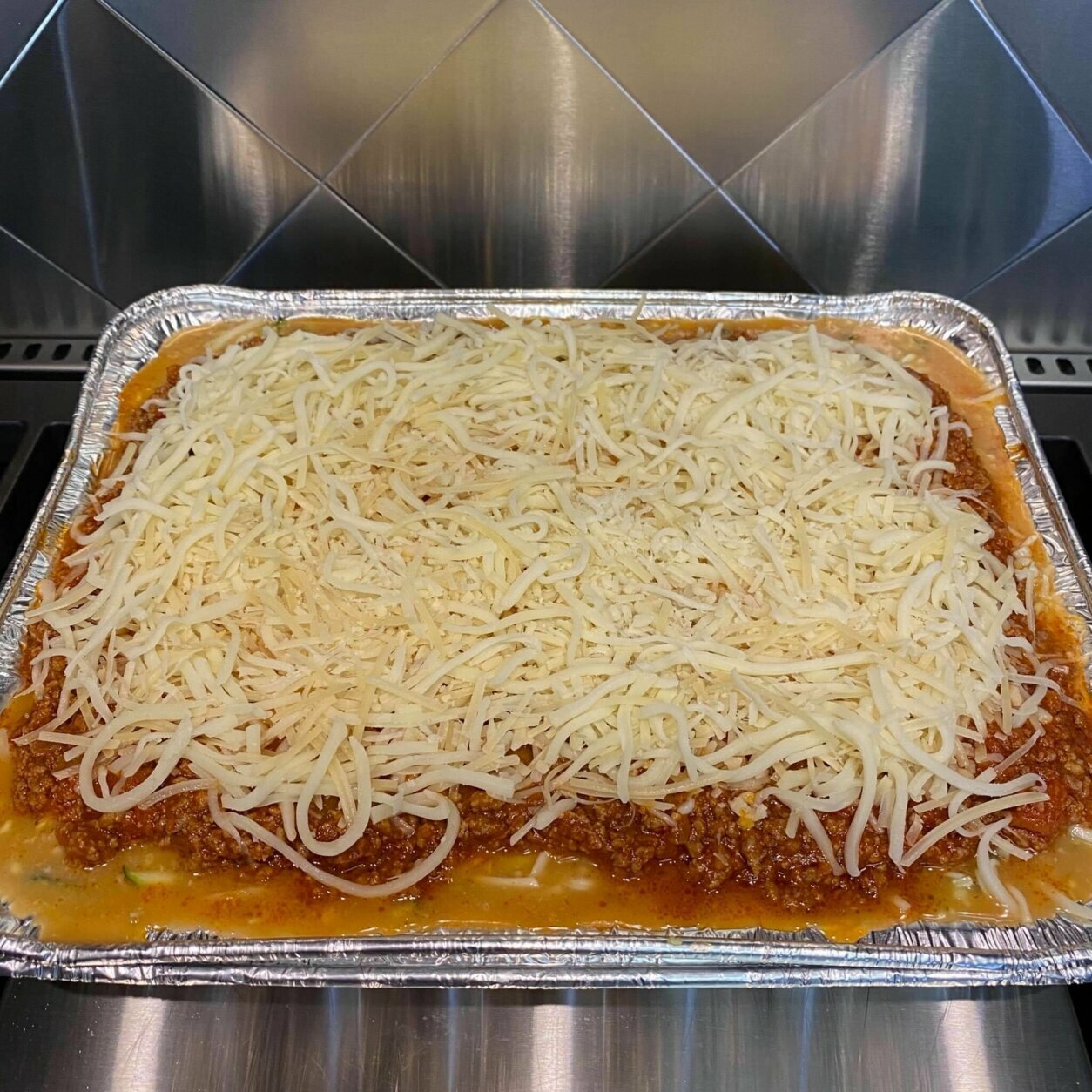
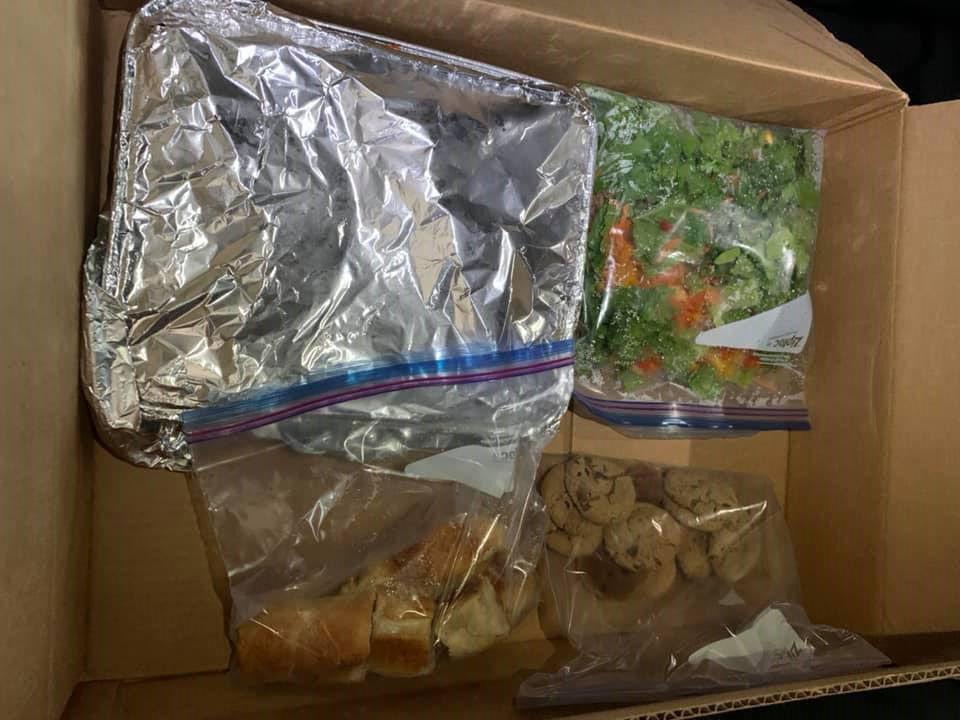
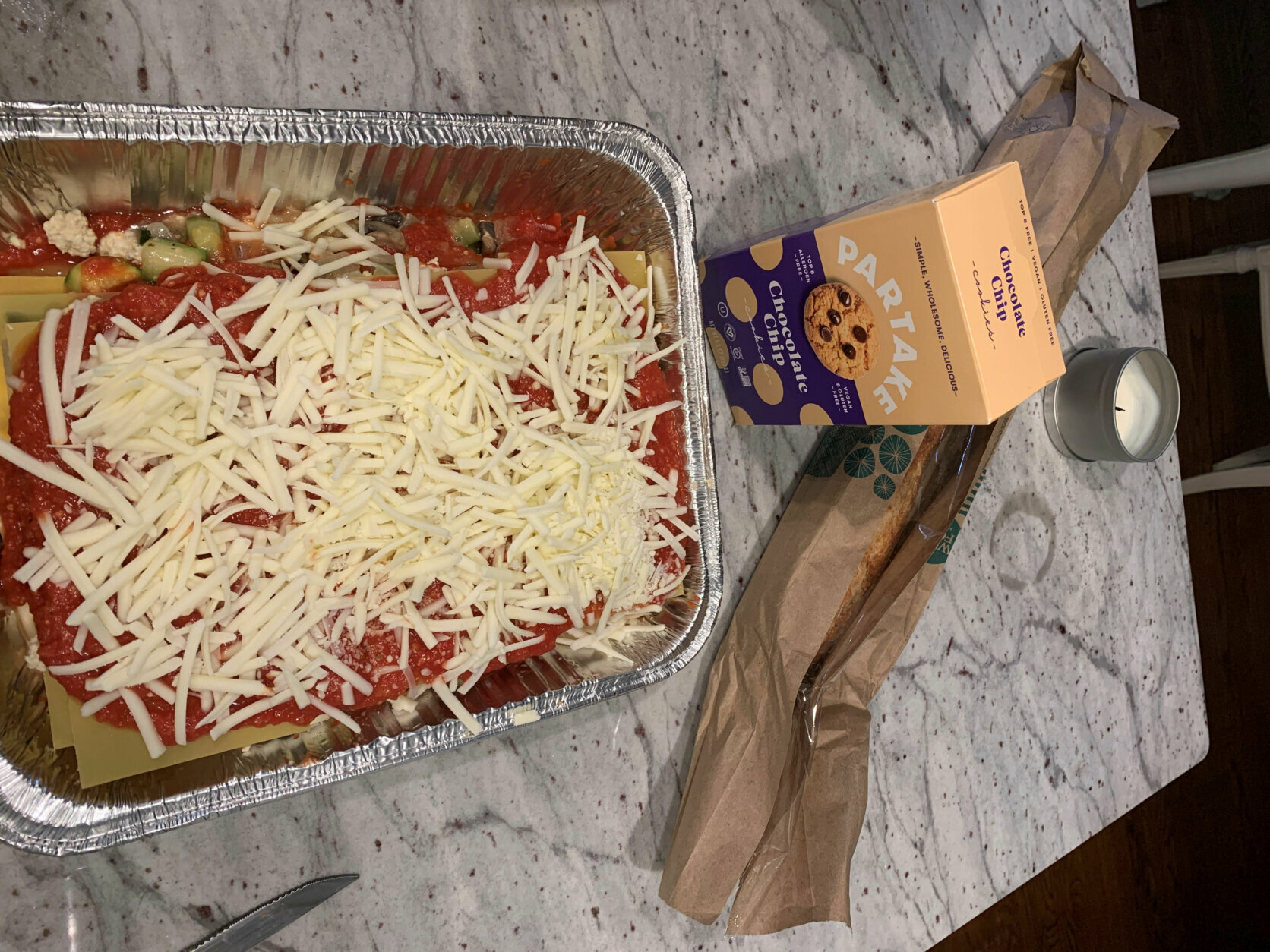
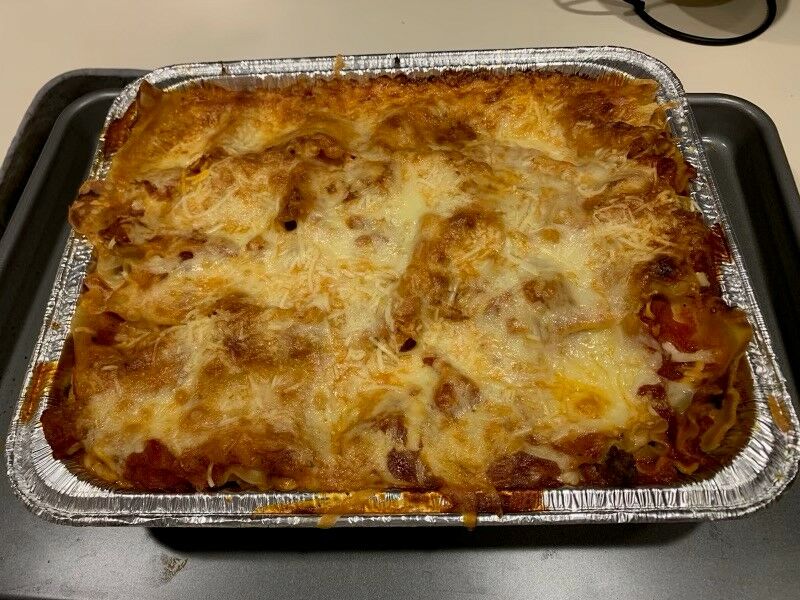
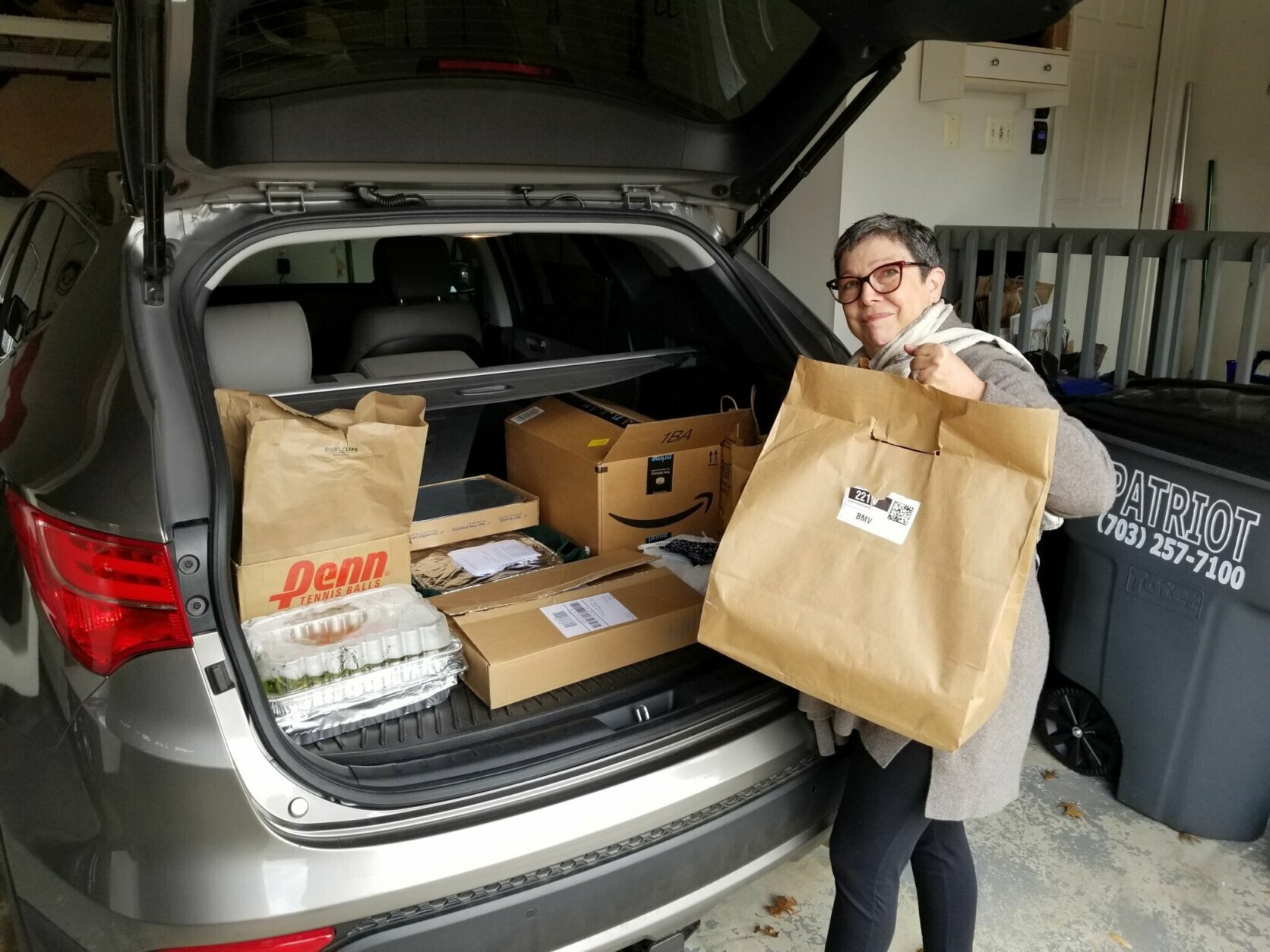
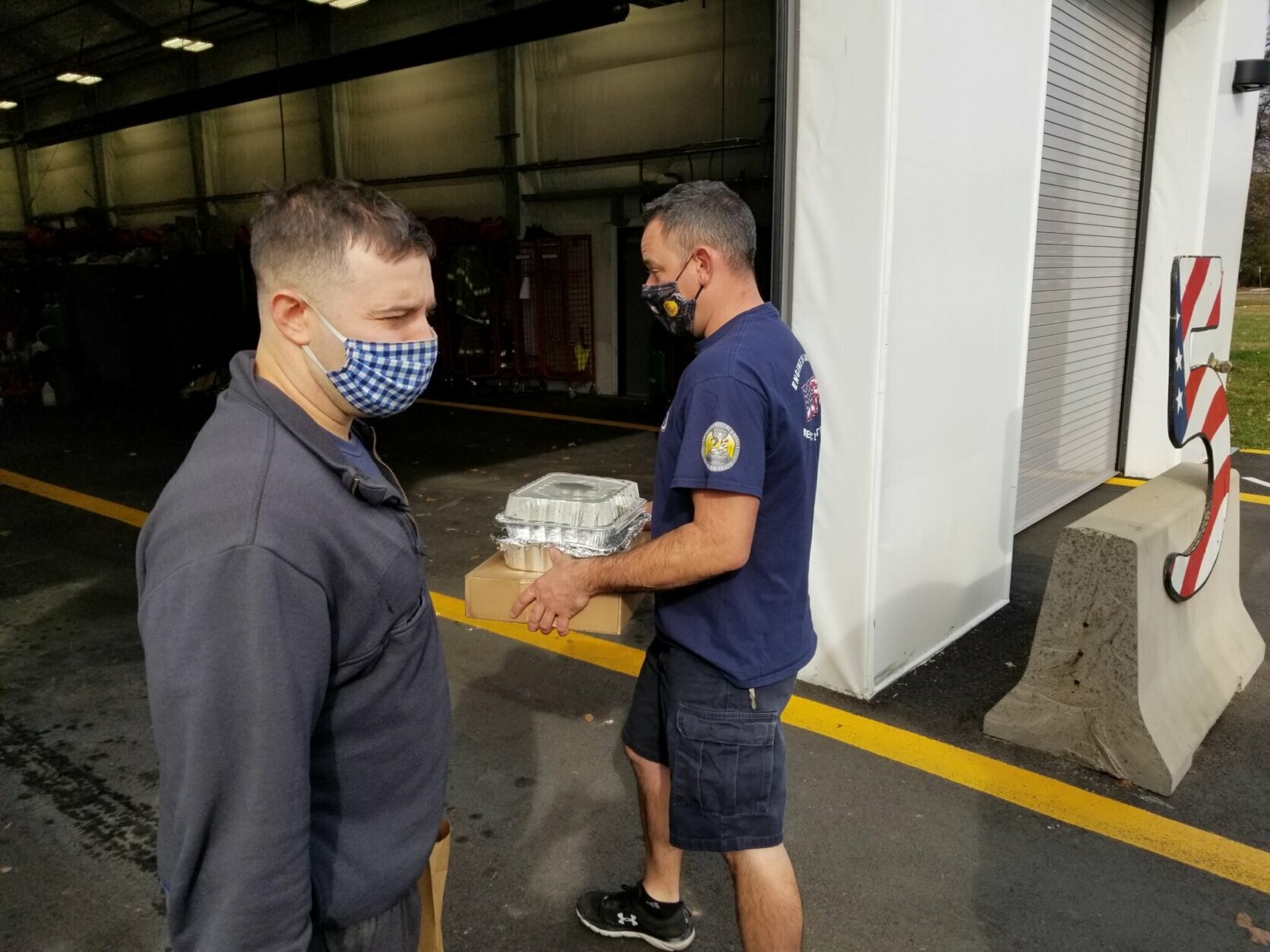
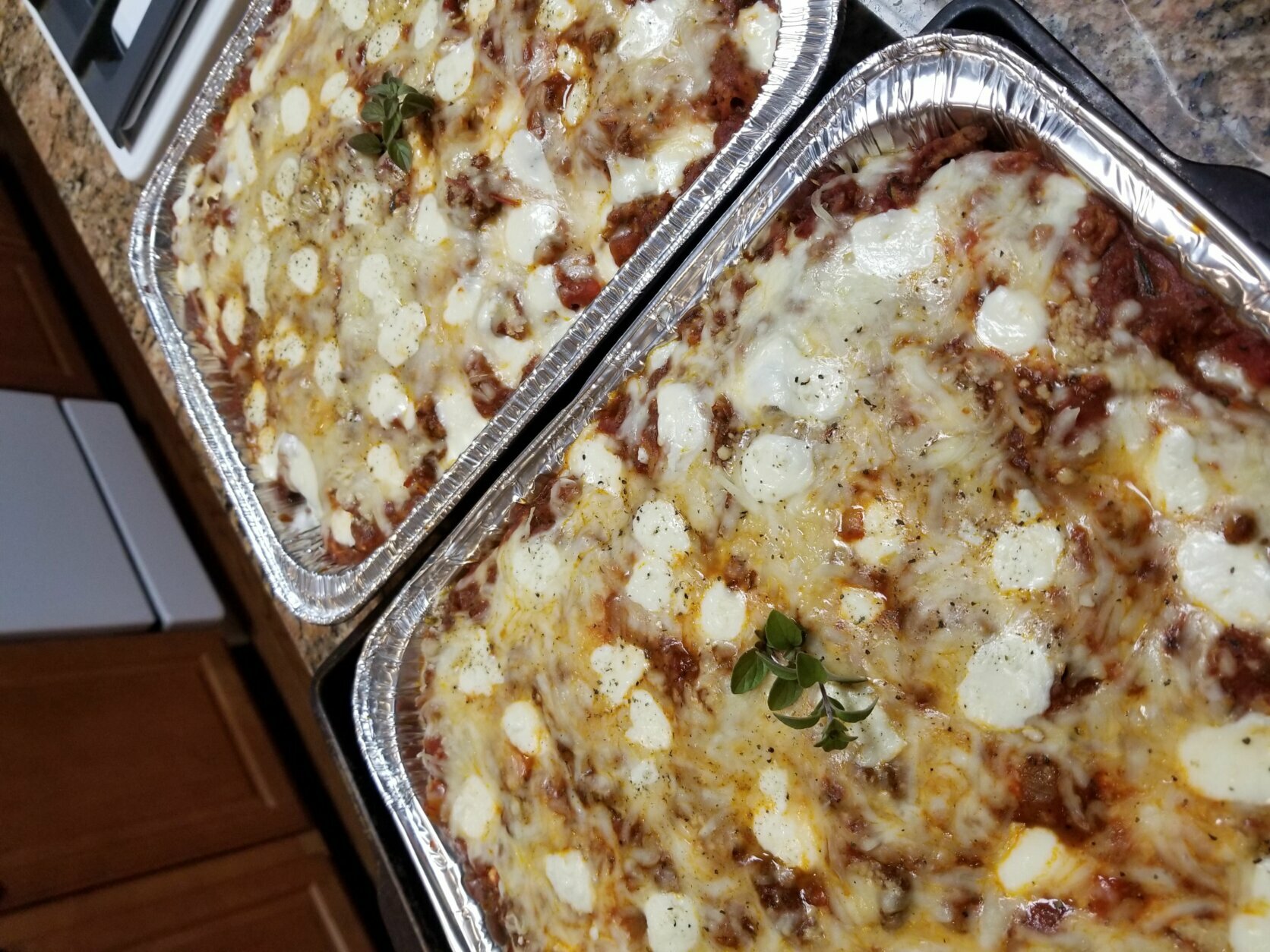
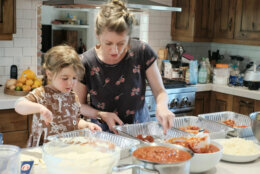
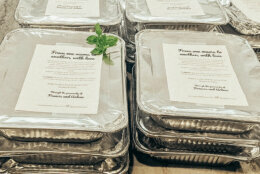
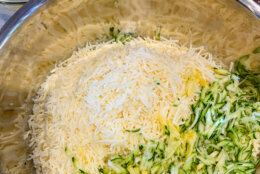
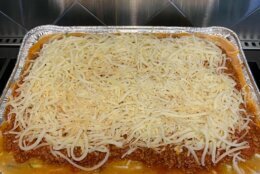
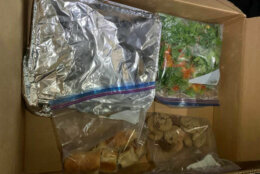
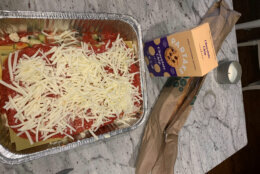
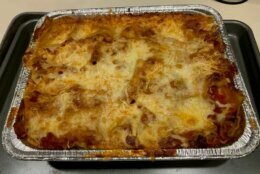
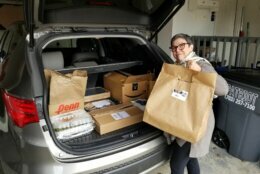
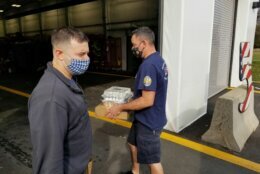
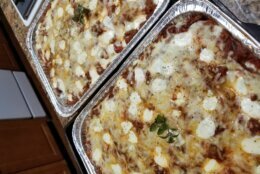
In California, Rhiannon Menn spent the first nights of the coronavirus pandemic hitting refresh on grocery store websites as the demand for food delivery boomed.
By chance, Menn was able to secure a coveted Costco delivery, adding whatever items were in stock to her cart. Then, she posted in local moms groups, offering help to families either struggling financially or lacking the energy to cook.
In a week, Menn, with the help of her young daughter, prepared and delivered seven meals, but then started hearing from people who didn’t need meals but also sought to volunteer and give back during the pandemic. By May, 10 women in her neighborhood wanted to pitch in.
What started as Menn wanting to assist families in her community has turned into a national movement. Now called Lasagna Love, Menn’s initiative has 5,000 volunteers across the country, with some in D.C., Maryland and Virginia. Eight months after Menn’s first food deliveries, the group is delivering 1,000 meals each week to families in need.
“To me, lasagna is a comfort food,” Menn told WTOP. “My goal wasn’t just feeding a family, it was showing that family warmth and love. Lasagna, it takes a little bit to make. You have to put something into it. This was more about spreading kindness and showing people, ‘I’m here for you.'”
In addition to the effort that goes into making lasagna, Menn said it became her go-to choice for families because the necessary ingredients — some variation of cheese, sauce and pasta — were almost always in stock.
The organization solicits volunteers online, and then a regional leader helps coordinate logistics. Volunteers can cook weekly or monthly and work with recipients to organize a contactless delivery.
While some volunteers purchase ingredients themselves, Menn said many people have contacted her to make donations, and local businesses have also contributed some funding.
Kinsey Brown, Lasagna Love’s regional lead for D.C., said she has received grocery store gift cards from some of her neighbors in Capitol Hill, and has used them to buy three weeks’ worth of ingredients. She also occasionally receives Venmo donations that are distributed equally among volunteers.
While volunteers are given a standard lasagna recipe, few lasagnas are the same. Each volunteer is encouraged to ask their paired family for requests or dietary restrictions, with some even cooking zucchini roll-ups in lieu of lasagna, Brown said.
“What’s great about this organization is each volunteer can make it very unique to themselves,” Brown said. “People, if they have children, maybe they’ll add a salad or send a coloring book. But what it comes down to is the root of home-cooked lasagna that a family doesn’t have to worry about cooking that night, or they don’t have to worry about even how they’re going to get food on the table.”
Brown said the D.C. group has about 60 volunteers, with the goal of having enough requests to match every volunteer with an interested family.
Since starting meal deliveries about two months ago, the Northern Virginia volunteers have made and delivered several hundred meals, said Eileen Scherzinger, who oversees Lasagna Love’s efforts in the region.
For Scherzinger, the group’s impact became evident during her first delivery. Scherzinger made several small meals for a woman who was having a difficult financial time, so much so that she had to give up her car because she struggled to pay bills.
“She couldn’t get over how much food and how it just changed her whole life,” said Scherzinger. “Just having known that somebody really made an effort, like she wasn’t alone. It’s the isolation that affects a lot of people right now.”
Moving forward, Scherzinger is hoping to expand the Lasagna Love footprint in Northern Virginia, working with nurses, doctors, first responders, teachers and families.
Brown has similar aspirations for D.C., and she’s working to collaborate with more shelters and partner with public schools.
“The kindness is what really makes this such a strong program that people just really appreciate that,” Scherzinger said. “We sometimes are lacking that humanity in this time, and to see that somebody cares, and that we can reach further and get into those communities would really make a big difference.”
For Menn, the evolution of Lasagna Love has been twofold.
“It’s not just the families, we’re impacting the volunteers in a positive way as well,” Menn said. “I mean, that’s wonderful. I’m glad that we’re able to sort of have a positive impact on both groups of people.”
Learn more about Lasagna Love, or sign up to volunteer or receive a meal, on the organization’s website.




